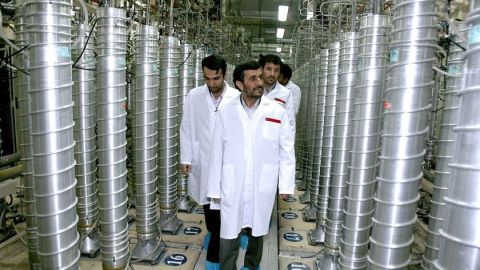How I Poured Cold Water on a Nuclear Iran

In 2007 I was asked using my forecasting model to look over a period of a few years into the future to analyze the likelihood that Iran was going to build a nuclear weapon. My model led to the conclusion that within the 95% confidence interval Iran was not going to build a nuclear weapon, although the leadership would advocate developing enough weapons grade fuel so that people would know they know how to build a weapon because they could gain all the political advantage from showing that they have the technology to make weapons grade fuel and none of the political liability by making it.
When I briefed the government on that forecast there was a lot of resistance and during the briefing I pointed out the data that I had used were after all their data, so we couldn’t argue about the data. We could argue about the logic of my model and compare that to the logic they had used to reach a different conclusion.
My model’s logic was completely transparent and so I said “All right, here is my logic, you tell me where there is a flaw in reasoning or tell me what the reasoning was that led to your conclusion.” This led to a rather unpleasant exchange. I went off not very happy. I got an email from the chief intelligence officer responsible for proliferation issues two days later indicating that my briefing had kept him up for two nights because he couldn’t answer my question with anything other than at the end of the day it really was his belief, but he didn’t have hard evidence for his belief.
That person – this was in August, 2007 – was the person who in October, 2007 wrote a new national intelligence estimate, which was made public that stated that we had no hard evidence that Iran was trying to build a nuclear weapon and had not had any such hard evidence since 2005.
I’m sure they had lots of sources of information that were compatible with what I had to say. I’m not suggesting that I was responsible for that change in view, but I think my model helped a little bit to contribute to it and in particular it helped to compel people to have an internal debate about exactly how did we arrive at this conclusion. That is what a good model should do whether it’s being used in the intelligence community, it’s being used in the business community, it’s being used by NGOs all of whom have used it. It should prompt debate when it disagrees with the conclusions that the people in that organization have come to.
I feel very good about the notion that I made a little contribution to tying President Bush’s hands because this national intelligence assessment was made public because that is the period when people were talking about a third world war, which thank God didn’t happen.
In Their Own Words is recorded in Big Think’s studio.
Image courtesy of Shutterstock





